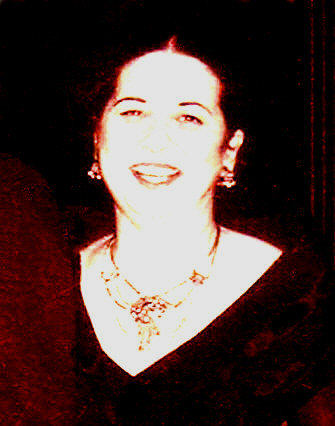
Interestingly enough, when I shared my essay with my editor (Beliefnet’s health editor) Holly, she said that she had written her own essay, as well. I was very moved by it. And thought you might be, too.
In a way, our essays formed a circle: mine was about what happens when families break and all the questions that arise, and hers was about the beauty visible when families stick together….
The world my Great Aunt Minnie came from centered around the family table. At her house, that table overflowed with dishes and salt cellars and candies and every manner of food. Her youth was spent in a world of “cousins’ clubs,” where family would get together for bridge, mah jong, or just “coffee and….” In those days in Boston, even though English was the main language, everyone knew when it was time to kick back and talk to each other “in Jewish.”
It always amused Aunt Minnie that some of us referred to her as “Ant” or “Anti,” rather than the true Bostonian “Auhn-tee.” It was a symbol to her, I think, of how much things had changed since she was a girl. Everyone moved away from the old traditionally Jewish neighborhoods. Many in the family married non-Jews, and I can’t imagine that anybody in my generation or younger is conversant in Yiddish. I know I’m not.
Aunt Minnie was the last of her four siblings and the last vestige of a table-centered life in our extended family. At age 94 or 95, depending on who you ask, she lay dying in the Chelsea Jewish Nursing Home, and I stood at her bedside wondering what would become of her ideals, her basic definition of family as an amalgam of food, laughter, and connection, all to excess.
Visiting her in the nursing home, my mother, sister and I found ourselves shaking hands and saying “nice to meet you” to Aunt Minnie’s grandsons, who have been her devoted caretakers for years. I wondered if a polite handshake would be what passed for family when Aunt Minnie was gone. It seemed such a sad possibility.
But Aunt Minnie was built for family–the idea of family. And she made sure that even as a stomach toxin ravaged her body, she made a family out of that motley crew that had gathered for her.
The same force of nature she’d always been, she cracked jokes from her bed. Her signature sayings, a combination of Jewish humor and good old Yankee common sense, were proverbs we discovered we all clung to. In Aunt Minnie parlance, a bad housekeeper gives a mess “a lick and a promise.” A short-sighted person “drinks the milk and then kills the cow.” Someone who likes to play more than work is a “good-time Charlie.”
We laughed together about Aunt Minnie’s proclivity for buying 72 boxes of sandwich bags, index cards, rolls of tin foil, and other sundries, so that nobody ever left her house without a couple of grocery bags full of things. I don’t think I’ve bought napkins in the eight years I’ve lived in Boston.
By the time we said goodbye to her, we all realized how much of her we each carried inside ourselves, and how that connection had made a family out of perfect strangers. If only in those moments when we really need it, family is real. I don’t know what it will look like, but our family will survive. This I believe, Auhntie Minnie.
To read more Beyond Blue, go to www.beliefnet.com/beyondblue, and to get to Group Beyond Blue, a support group at Beliefnet Community, click here.

